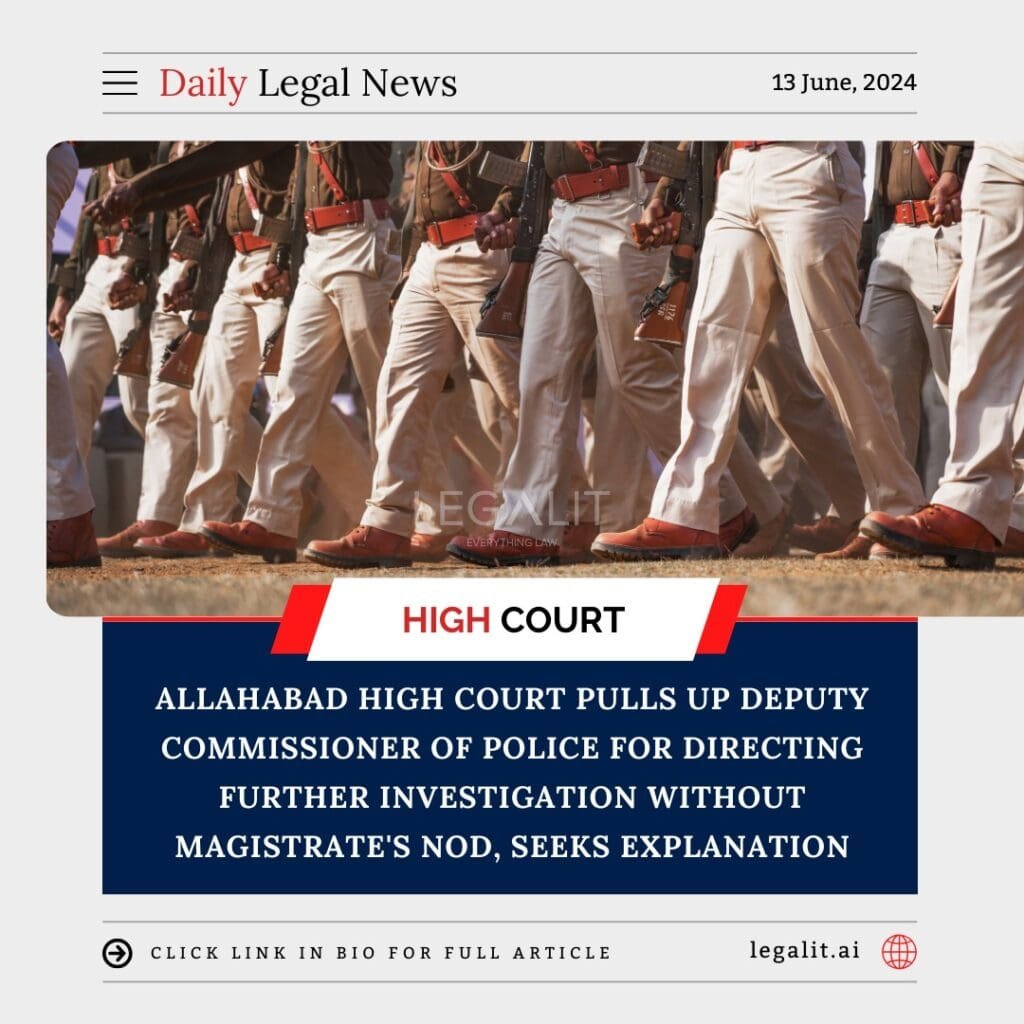
In a significant ruling, the Allahabad High Court has reprimanded the Deputy Commissioner of Police (DCP) for initiating further investigation in a case without obtaining the necessary approval from a magistrate. The court emphasized the legal requirement for such approval under Section 173(8) of the Code of Criminal Procedure (CrPC) and has sought an explanation from the DCP regarding this procedural oversight.
Background of the Case
The case involved an investigation that had reached a conclusion, and a final report was submitted. However, the DCP directed further investigation without seeking the magistrate’s permission. This move was challenged in the High Court, which led to the current proceedings.
Court’s Observations
The Allahabad High Court highlighted several key points in its ruling:
- Legal Framework:
- Section 173(8) of the CrPC clearly states that any further investigation must be conducted only with the permission of the magistrate. This provision ensures judicial oversight and prevents arbitrary or unauthorized investigations by the police.
- Importance of Magistrate’s Approval:
- The court underscored that obtaining the magistrate’s approval is a crucial step in maintaining the integrity and fairness of the judicial process. It prevents misuse of power and ensures that any additional investigation is warranted and justified.
- Seeking Explanation:
- The court has asked the DCP to provide a detailed explanation for bypassing the required procedure. This step is essential for accountability and ensures that such procedural lapses do not recur in the future.
Implications of the Ruling
This ruling reinforces the importance of adhering to legal procedures in criminal investigations. It serves as a reminder to law enforcement agencies that their actions must align with established legal protocols to uphold justice and prevent arbitrary decisions.